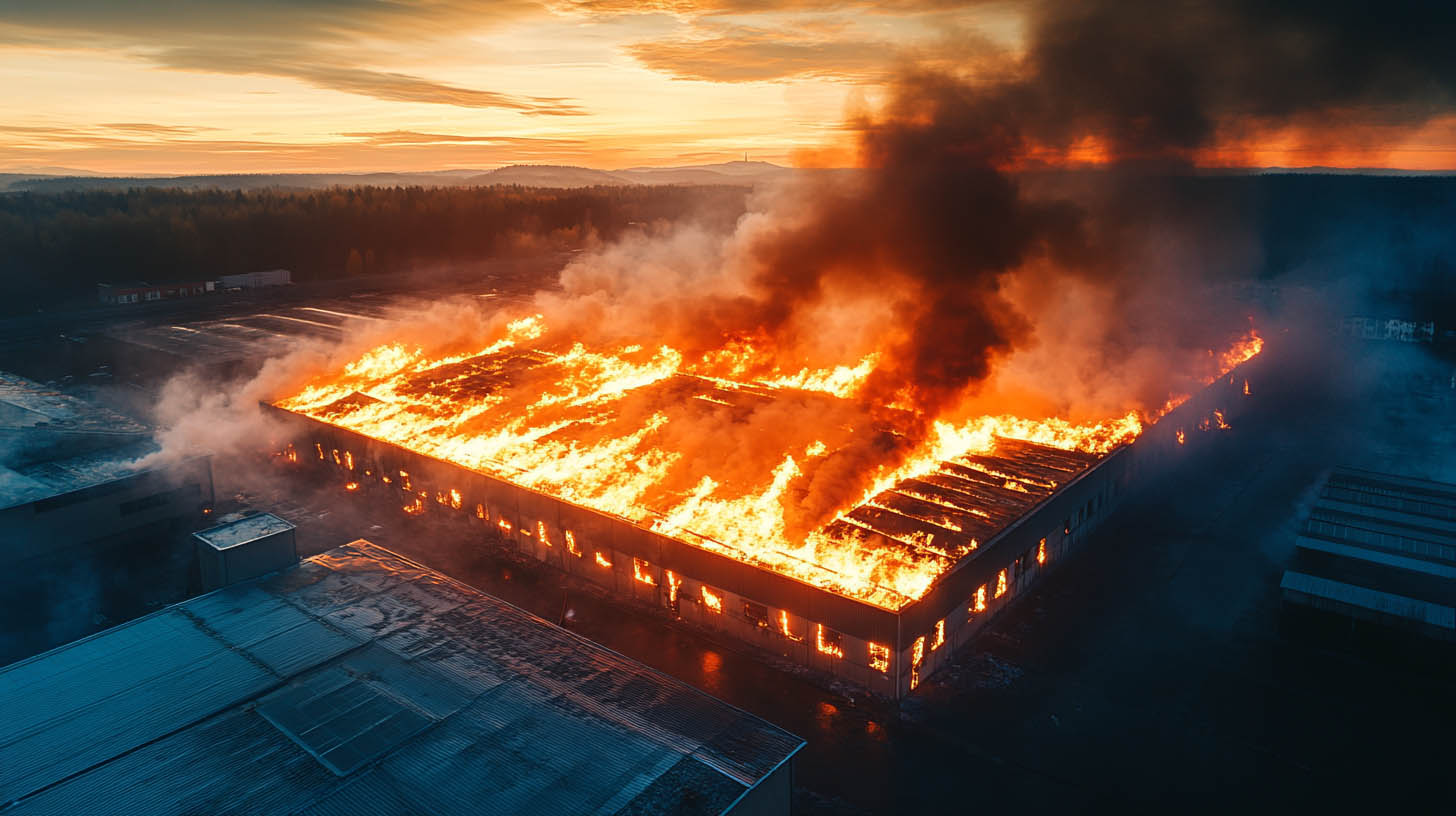
Commercial roofing involves more than just protecting against leaks; it also requires robust fire prevention strategies. With the unique vulnerabilities that commercial buildings face, keeping your roof fire-resistant is essential. Rainstoppers Roofing in Charleston, WV, shares some critical tips to safeguard your business from potential fire risks on your commercial roof.
Choose Fire-Resistant Roofing Materials
One of the first defenses against roof fires is selecting fire-resistant materials. Fire ratings for roofs are categorized as Class A, B, C, and unrated, with Class A materials offering the highest level of fire protection. These materials can endure severe fire exposure without igniting, ideal for buildings in wildfire-prone areas or close to fire hazards. Conversely, Class B and Class C materials offer moderate to low fire resistance, while unrated materials lack fire protection altogether and are generally not permitted by building codes.
For commercial buildings, especially those with complex roof shapes featuring multiple ridges and valleys, selecting Class A materials is crucial to reduce vulnerability to fires.
Repair Roof Damage Immediately
Even with fire-resistant materials, damaged areas on a roof create weaknesses that fire can exploit. Cracks, gaps, or holes in the roofing allow flames to penetrate and spread more easily. Prioritizing regular roof inspections and promptly repairing any visible damage is key to maintaining consistent fire protection across the entire roof surface.
Regular roof maintenance is one of the most cost-effective ways to prevent fire hazards in commercial buildings. By addressing vulnerabilities quickly, you reduce potential risks and prolong the lifespan of your roof.
Eliminate Roof Leaks
While water damage from leaks is typically considered harmful for other reasons, it can also be a fire hazard. Roof leaks allow water to penetrate into electrical systems, which can lead to short circuits and sparks. These sparks may ignite surrounding materials, leading to a fire. Thus, addressing any leaks as soon as they are detected is essential for both fire safety and structural integrity.
In addition, a well-sealed roof protects your electrical systems and minimizes the risk of water seeping into areas where it could pose a fire threat.
Regularly Clear Roof Debris
Accumulated debris on the roof, such as dry leaves, branches, and other organic materials, can serve as fuel for fires. Even fire-resistant roofing materials can ignite if exposed to burning debris for extended periods. Regularly clearing your roof prevents the buildup of flammable materials, reducing the chances of a fire igniting and spreading.
This maintenance practice is especially crucial during wildfire seasons, as stray embers could easily ignite accumulated debris.
Maintain and Inspect Your Electrical System
Faulty wiring and malfunctioning rooftop electrical systems, such as HVAC units or lighting fixtures, are common sources of roof fires. Aging wiring or improperly installed systems increase fire risk, as they may lead to overheating or sparks. Commercial buildings, especially older ones, should schedule regular inspections to identify issues like loose connections, overloaded circuits, and imbalanced electrical loads.
By ensuring that all rooftop electrical components are in optimal condition, you can further protect your roof against fire risks.
Conclusion
Taking proactive steps to fireproof your commercial roof can prevent extensive damage and ensure the safety of your property. With quality fire-resistant materials, regular maintenance, and comprehensive electrical inspections, commercial buildings can minimize fire hazards on the roof.
FAQs
Q1: What materials are best for fireproofing commercial roofs?
A1: Class A roofing materials, like metal and certain types of tiles, provide the highest fire resistance, making them ideal for commercial buildings in fire-prone areas.
Q2: Can roof leaks lead to fires?
A2: Yes, leaks can cause fires by allowing water to reach electrical systems, creating short circuits and potential sparks.
Q3: How often should commercial roofs be cleared of debris?
A3: Roofs should be cleared of debris at least once every season, especially before and during wildfire season.
Q4: What role does the electrical system play in roof fires?
A4: Malfunctioning electrical systems are a leading cause of roof fires. Regular inspection and maintenance reduce the risk of electrical sparks igniting a fire.
Q5: Do older buildings have a higher risk of roof fires?
A5: Yes, due to outdated wiring and electrical components that may no longer meet modern safety standards. Regular upgrades and inspections are essential for fire safety.To learn more about the pros and cons of metal roofing for your home, click here.
